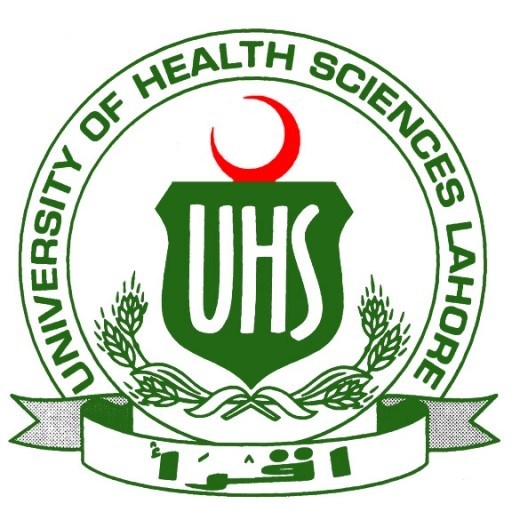The Urban Systems – Urban Health program at Rutgers University-Camden is designed to equip students with a comprehensive understanding of the complex interrelationships between urban environments and public health. This interdisciplinary program combines the fields of urban planning, public health, environmental science, and social policy to prepare graduates for impactful careers aimed at improving health outcomes in diverse urban settings. Students will explore the social determinants of health, environmental challenges, and policy frameworks that influence urban health disparities. Through a combination of coursework, practical field experiences, and research opportunities, learners will develop critical skills in data analysis, community engagement, health policy analysis, and sustainable urban development. The program emphasizes understanding the intricacies of city systems, from transportation and housing to sanitation and environmental quality, and their direct effects on population health. Students will also examine topics such as infectious disease spread, environmental justice, nutrition, mental health, and access to healthcare services within urban contexts. The curriculum is designed to foster a multidisciplinary perspective, encouraging students to think innovatively about solutions to urban health issues. Graduates will be prepared for careers in public health agencies, urban planning departments, non-profit organizations, research institutions, and government agencies focused on health equity and sustainable urban development. The program aims to produce graduates capable of addressing current urban health challenges through evidence-based strategies, community collaboration, and policy advocacy. With Rutgers University-Camden’s strong commitment to community engagement and experiential learning, students will have opportunities to participate in real-world projects, internships, and partnerships with local organizations. By completing this program, students will be well-equipped to contribute to healthier, more equitable, and sustainable urban environments, shaping policies and initiatives that improve quality of life for urban populations.
The Urban Systems - Urban Health program at Rutgers University-Camden offers an interdisciplinary curriculum designed to equip students with comprehensive knowledge and practical skills to address complex health issues within urban environments. This program emphasizes the interconnectedness of social, economic, environmental, and infrastructural factors that influence public health in cities. Students will explore topics such as epidemiology, health policy, community health promotion, environmental health concerns, and urban planning strategies. Through a combination of coursework, research projects, and field experiences, learners gain a deep understanding of the challenges faced by urban populations and develop innovative solutions to improve health outcomes. The program also fosters collaboration across disciplines, encouraging students to work with public health agencies, community organizations, and government entities. Graduates will be prepared for careers in public health administration, urban planning, policy analysis, community advocacy, and research. The curriculum incorporates the latest advancements in health sciences, data analysis, and sustainable urban development, ensuring that students are well-equipped to make meaningful contributions in diverse urban settings. Practical training components may include internships, community engagement initiatives, and collaborative projects that provide real-world experience. Overall, the Urban Systems - Urban Health program seeks to cultivate leaders who are committed to creating healthier, more equitable cities by addressing the multifaceted determinants of health through innovative, evidence-based approaches.
The Urban Systems — Urban Health program at Rutgers University-Camden is designed to prepare students for careers focused on improving urban health outcomes through interdisciplinary approaches. The program emphasizes understanding the complex interactions between environmental, social, policy, and healthcare systems within urban settings. Students enrolled in this program are required to complete a comprehensive curriculum that includes core courses in public health, urban planning, environmental studies, and healthcare management. Additionally, the program offers specialized electives such as epidemiology, health policy, community health, and urban sociology to deepen students’ knowledge and skills in areas relevant to urban health challenges.
To obtain the degree, students must accumulate a specified number of credits, typically around 120 to 130 semester hours, including general education, major-specific, and elective courses. The program mandates a combination of lectures, seminars, and practical internships or fieldwork that provide real-world experience in urban health initiatives. Students are also required to complete a capstone project or thesis that demonstrates their ability to apply interdisciplinary concepts to real urban health problems. This project often involves working with community organizations, government agencies, or health institutions to develop sustainable solutions.
Moreover, the program fosters research and critical thinking skills, encouraging students to engage with current issues such as health disparities, environmental justice, and access to healthcare in urban environments. They must also maintain a minimum GPA, which varies but is generally set at 2.0 or higher for continued progression and graduation eligibility. The program may also include prerequisites such as introductory courses in biology, sociology, or public health to ensure that students have a foundational understanding of key concepts before advancing to more complex topics. Overall, the program aims to equip graduates with the knowledge, skills, and practical experience necessary to pursue careers in urban health policy, community planning, public health administration, and related fields, contributing effectively to healthier urban communities.
The Urban Systems—Urban Health program at Rutgers University-Camden offers a range of financing options to support students throughout their academic journey. Tuition fees vary depending on the student's residency status, with in-state students benefiting from lower tuition rates compared to out-of-state students. Rutgers University-Camden provides in-state tuition for New Jersey residents, which is competitively priced to make higher education accessible. Out-of-state students are subject to higher tuition fees, but various scholarships and financial aid opportunities are available to help bridge the gap.
The university encourages prospective students to explore federal financial aid programs such as the Free Application for Federal Student Aid (FAFSA), which can provide grants, loans, and work-study opportunities. The UR Scholarship Program offers merit-based scholarships to outstanding applicants, which may cover partial to full tuition costs depending on academic achievement and other criteria. Additionally, the university collaborates with external organizations and foundations to provide private scholarships to students pursuing degrees in urban health and related fields.
Rutgers-Camden also offers graduate assistantships and teaching assistantships, which not only provide financial support but also valuable professional experience. These assistantships typically include a stipend and a tuition waiver, significantly reducing the overall cost of the program for recipients. Furthermore, payment plans are available to help students manage their tuition payments over the course of the academic year.
Financial planning resources are accessible through the university’s Office of Financial Aid, where students can receive personalized advice on paying for their education. The university also provides information on loan options, including federal Direct Loans, which typically have favorable interest rates and flexible repayment terms. For students interested in part-time employment, Rutgers-Camden’s campus job board lists various on-campus positions that can help offset personal expenses.
The university periodically offers special funding opportunities and emergency grants for students facing unexpected financial hardships. To maximize available resources, students are encouraged to submit their financial aid applications early and to stay informed about deadlines and requirements. Overall, Rutgers University-Camden is committed to making urban health education affordable and accessible through a comprehensive range of financial aid options, scholarships, and flexible payment solutions, ensuring that students can focus on their academic and professional development without undue financial stress.
The Urban Systems — Urban Health program at Rutgers University-Camden is designed to prepare students for impactful careers addressing the complex health challenges faced by urban populations. This interdisciplinary program integrates knowledge from public health, urban planning, sociology, environmental science, and policy studies to provide a comprehensive understanding of health issues within urban contexts. Students in this program gain critical skills in data analysis, community engagement, policy development, and health promotion strategies tailored to diverse urban environments. The curriculum emphasizes real-world applications through internships, community projects, and research opportunities, enabling students to develop practical solutions to urban health disparities, environmental hazards, and social determinants of health. The program aims to produce graduates who can work effectively in public health agencies, community organizations, urban planning firms, and governmental entities focused on improving health outcomes. Courses cover topics such as epidemiology, health policy, environmental health, urban sustainability, health communication, and social justice. Faculty members are experts in urban health issues, and students benefit from close collaboration with local health agencies and community partners in the New Jersey area. The program also emphasizes the importance of interdisciplinary approaches and innovative technologies in addressing urban health challenges. Graduates of the Urban Systems — Urban Health program are equipped to contribute to policy development, health advocacy, research, and community empowerment initiatives that improve the quality of life in urban settings. The program prepares students for advanced study or careers in urban health planning, public health administration, environmental justice, and related fields, fostering a new generation of professionals committed to advancing health equity and sustainable urban development.




